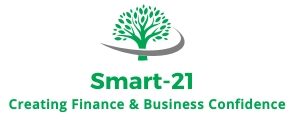Photo by Adrian Balasoiu on Unsplash
Sustainable Business being a key player in achieving the UN’s Sustainable Development Goals
This is not just about social responsibility as some sort of add on to a business. It is about business being core to a more sustainable world. Sustainable business for SDG’s. Go to the UN website & have a look at the 17 goals listed. Then think a little. Finally, ask yourself – is there anywhere that business cannot make a significant contribution? The answer should be, no there are not. But just to give you a little idea, here are three of the SDG’s:
After having checked these out do you still doubt its possible for business to be a key driver in building this better world? Put it another way, if the world continues as it is whether from a climate crisis angle or the disparity between rich & poor, then ultimately, everyone loses. Badly. Business can & must play its part. Sustainable business for SDG’s.
Books Worth Reading
Whilst I did a lot of thinking, discussing with others & used my experiences to come to the ideas discussed above & in the first two part s of this mini series, undoubtedly, reading many great books helped me on my never-ending exploratory journey. So, below is a list – not all have been mentioned above but they all have played a role. Some are very recent – always a good idea to keep exploring. Enjoy!
- “Small IS Beautiful” – E F Schumacher
- ” In Search of Excellence” – Tom Peters & Robert H Waterman Jr
- “Business as Unusual” – Anita Roddick
- “The Hungry Spirit” – Charles Handy
- “Heroic Leadership” – Chris Lowney
- “Insanely Simple” – Ken Seagall
- “Small Giants” – Bo Burlingham
- “Company of One” – Paul Jarvis
- “Spiritual Capital” – Danah Zohar & Ian Marshall
- “Essentialism” – Chris McKeown
- “Building Social Business” – Muhammad Yunus
- “Enough” – John C Bogle
- “Lab Rats” – Dan Lyons
- “The Passions Economy” – Adam Davidson
Conclusion
Where to from here? All of this represents the approach I take to business at a philosophical level – how I see things from a macro standpoint. It helps inform how I go about working with clients – to assist them in developing successful, sustainable & meaningful businesses. Businesses that not only are profitable but inclusive – true members of their community. As indicated at the beginning of this piece, subsequent articles will follow to delve a bit deeper into how this can all be implemented.
If you would like to discuss this more or have a comment, please get in touch.









